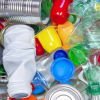Independen -- On July 22, Susan (not her real name) returned home with a troubled heart and many questions. She was baffled that she could not withdraw the full amount of Rp300,000 (US$20.10) from her child’s KJP Plus account, as Jakarta Government previously promised. The Jakarta Smart Card Plus or KJP Plus is a subsidy program for Jakarta students from lower-to-middle income households. The amount varies according to education level.
"[The government] said we get a full Rp300,000, but in fact there are cuts," said Susan.
For the third time, Susan had to accept that her child’s KJP Plus account was deducted by Rp1,111. A similar thing happened on June 26 and May 20 when she withdrew cash from the ATM.
"In June, I received Rp298,000. I withdrew it at the urban village administration [office], and strangely, the receipt said Rp300,000, whereas the balance according to the ATM was Rp298,000," she continued.


Susan’s ATM screen showed Rp298.880, while her receipt stated Rp300,000 with a balance of Rp10,274. The KJP withdrawal was made in June (Photo: Susan)
When she found out that her account had been credited, Susan was averse because turned out other junior high students got the whole Rp300,000. Even if her child’s KJP got deducted, Susan hoped that she would get a detailed explanation about it.
"I cannot overlook [the fact] knowing that it was cut because there is no explanation why. Is it for charity? Nothing. No spoken or written information or notification about it," said Susan.
She could understand if the ATM does not issue a receipt, because lately, she found ATMs that do not issue receipt or proof of transaction. Susan also knew if all transactions using the ATM would be recorded in a passbook, and that the ATM should print out receipts.
"Maybe if it was a cash transaction, there will be no problem if there is no printed receipt. But for money transfers, it could confuse customers, whether a transaction has been successfully processed or not," she continued.
According to Susan, some people might not need a receipt. But for her, it is vital to have proof whether the fund that she collected is the same as what is displayed on the ATM machine.
"As I remembered, the receipt was only printed out on the second withdrawal. There was no receipt on the first and the third. Because I had an experience where I printed out my account balance, but the amount does not tally with the transaction details," Susan explained.

Dian and her daughter, who was a sixth-grade student. They lived together in her parent’s house in Mampang Prapatan, South Jakarta. (Photo: Jekson Simanjuntak)
Meanwhile, Dian (40), a parent of an elementary school (SD) KJP Plus recipient, mentioned that the fund they received during PSBB (large-scale social restriction) was already appropriate. She managed to withdraw Rp250,000 funds from the KJP Plus account via ATM.
"During these three months, there is no KJP reduction. If the allowance was Rp250,000, then we could withdraw Rp250,000," said Dian.
As far as she knew, KJP Plus funds during the COVID-19 pandemic can be withdrawn by anyone, and there is no deduction. The fund was disbursed to ease the burden of parents.
"Previously, there were cuts. Usually, Rp5,000 for administration and others, and it was not routine. But if there is a Rp1,111 cut, then it’s weird. And for what, because in the passbook it was described that the administration cost was a round sum of Rp1,000," she continued.
Ati (43) with her two children in their rented house, her eldest had just graduated from SMA (Senior High School), while her youngest graduated to sixth-grade elementary school. (Photo: Jekson Simanjuntak)
Ati (43), also a parent of KJP Plus elementary school recipient, expressed the same thing. Within the past three months, Ati routinely withdrew cash money amounting to Rp250,000.
"For KJP during the Covid period, it was clear, the amount is Rp250,000 no deductions. The last time I withdrew on July 20 at the urban village administration [office]," said Ati.

Ubaid Matraji, JPPI (Indonesia Education Monitoring Network) national coordinator, was concerned about Indonesian education quality. (Photo: Special)
JPPI (Indonesia Education Monitoring Network) national coordinator Ubaid Matraji viewed that KJP Plus should have helped impoverished communities with their financial problems and getting access to education.
When there are cuts, however small, and happens to a lot of recipients, then it would be detrimental to the KJP Plus program, said Matraji.
"Things like these are never mitigated by the Jakarta administration. These kinds of risks are considered normal, so there are many omissions and are actually detrimental to KJP beneficiaries," he said.
Unfortunately, as of publishing time, city-owned Bank DKI—responsible for the disbursement of KJP funds, has not responded to requests for an interview.
KJP Plus Slackening
In mid-May, Jakarta’s Education Office issued a policy to merge routine and periodical funds and temporarily remove non-cash disbursement requirements—previously the disbursement scheme for KJP Plus. Through that policy, the Jakarta Education Office hoped that all of the funds could be used to relieve families struggling during the COVID-19 pandemic.
"Thus, the nominal that is disbursed per month are Rp250,000 for elementary school level, Rp300,000 junior high school level, Rp420,000 senior high school level, Rp450,000 vocational high school level, and Rp300,000 [for students of] community learning centers," said Nahdiana, Head of Jakarta Education Office on May 15.

Amount Summary of KJP Fund. (source: https://kjp.jakarta.go.id/)
Also, the Jakarta Education office temporarily removes the food subsidy for KJP Plus recipients during the pandemic, and in exchange, it provides free social assistance packages throughout PSBB.
" In this manner, the KJP Plus funds that were initially used for food purchases can be used for other urgent matters," Nahdiana explained.
Susan said that she would be grateful when she received the social assistance package from the Jakarta government. However, she never received them. She only received the one from the Social Ministry.
"The social aid that I’ve received was not from the provincial government, but from the Social Affairs Ministry. I also do not know how to access social aid from the regional government," she questioned.
According to Nahdiana, KJP Plus policies during PSBB was put into force since May and was temporary in nature. When PSBB ends, the system will return to normal.
"The scheme was already disbursed in May 2020, and valid through PSBB period," she said on Friday (15/5).
Nahdiana also asserted that additional funds will still be given for students who have just graduated from Senior High School (SMA) or Vocational School (SMK). "KJP Plus recipients who are already in 12th grade or preparing to graduate to college will receive a bridging fund of Rp500,000 per person," she continued.
Ati confirmed the KJP Plus fund for SMA disbursement as her daughter was about to graduate from high school this year. She already withdrew the fund three times, the last one on July 23 for Rp450,000, without deductions.
"We already withdrew three times for those who almost graduate from SMA. The first time was Rp500,000 during Eid and afterward Rp450,000 twice," said Ati.
Previously, KJP Plus recipients would receive the disbursement in two parts. For example, students at the elementary school level are entitled to Rp250,000 every month. The amount was comprised of routine and periodic funds.
Routine funds were disbursed to the amount of Rp135,000 per month. However, only Rp100,000 were eligible to be withdrawn in cash. The rest (Rp35,000) was available as a non-cash fund in the form of a food subsidy. Meanwhile, the Rp115,000 was a periodical fund that could only be disbursed after every six months.
"They are disbursed at the end of the semester and can be used to be spent on students’ needs, non-cash," said Nahdiana.

KJP fund disbursement procedure during PSBB. (Source: https://kjp.jakarta.go.id/)
Unfortunately, during the pandemic, JPPI’s Ubaid Matraji said that students’ needs has sharply increased. Several expenses that are weekly, monthly, and daily were inevitable because they all became routines.
"Meanwhile, during the pandemic, [many families] lost their income. That’s why they need KJP Plus," Matraji explained.
For distance learning (PJJ) as well as books and stationery needs, for example. Matraji said that those have become the norm for students in the pandemic era.
"For distance learning, internet quota is obviously very much needed. Devices, such as computers or laptops or smartphones, are needed to support distance learning methods. Imagine how many children are constrained by [not having] the tools, so the government needs to think about that," he continued.
Missing Periodic Funds
Since May 2018, the Jakarta government has distributed Jakarta Smart Card (KJP) Plus, with disbursement done every month. The amount varies according to the level of education and is distributed through Bank DKI.
Susan, whose child has been a KJP recipient when they were still in elementary school, explained that the allocation for KJP Plus fund was divided into two parts, routine and periodical funds. It was under the Gubernatorial Decree (Pergub) no. 4 of 2018 on Jakarta Smart Card (KJP) Plus.
"The routine funds can be used for school needs, such as transportation, pocket money, and book purchases," said Susan.
Meanwhile, the periodical funds were disbursed per six months. According to Susan, it was often used for preparations for the new school year. Such as buying books, uniforms, school bags, shoes, and other items.
"Since my child recently graduated to SMP [Junior High School], then [our] periodic or semester fund was Rp115,000, while routine or monthly fund was Rp185,000," she continued.
Before PSBB, Susan claimed that they only received Rp100,000 in routine funds that could be withdrawn in cash. The rest (Rp85,000) was used for non-cash food subsidy.
"However, since May 21, per Jakarta’s Education office statement, KJP Plus for SMP—Rp300,000, can be fully withdrawn," she explained.
Even though Susan had made cash withdrawals for KJP Plus during PSBB, she still hoped that the periodic fund for the January-April period can also be disbursed.
"This is my right too. But there is no clarification until now when it’s already more than six months," she said.
Susan has already calculated her “missing” periodical fund, which was to the amount of Rp460,000. For the single parent, that amount was worth a lot.
"I was hoping that the [periodical] fund could be disbursed last June. But until now, I do not know where it went," she continued.
Susan was worried if the periodical fund was not disbursed, it could potentially lead to corruption practice. Especially if there is no management transparency.
She could calculate, in a simple way, the potential state loss if the fund was abused. She referred to the other seven KJP Plus recipients in her child’s class. Based on her calculation, if there are seven ninth-grade classes, then there are approximately 49 recipients of KJP Plus.
"Added to those in the eighth grade with six classes and seventh grade with seven classes. I calculated that there are 42 students in eighth grade and 49 students in seventh grade. So, the total KJP recipient in my child’s SMP is 140 students," Susan explained.
She then multiplied the four-month periodic fund owed to the 140 students, who were entitled to Rp460,000. The total sum was Rp64.4 million. Susan was convinced that for one school, the missing periodic fund was quite large.
"Imagine with the hundreds of thousands of KJP Plus recipients. How much is the state loss if the periodic fund is not distributed? The amount must be fantastic," Susan seethed.
A similar story also occurred at Dian’s school. At the state elementary school where her daughter currently studied, KJP Plus recipients vary from first grade to sixth grade. Most recipients are now in the fifth grade that is about to graduate to sixth grade.
"In our class, there are eight KJP Plus student recipients, and seven students in class B," she said.
On average, if in every class there are at least seven KJP Plus student recipients, Dian estimated that there are less than 100 students for the whole school.
"If there are seven KJP students, then for one school with 12 classes, the total KJP student recipients are about 84 students," said Dian. "Then we multiply the periodic fund of Rp460,000 per student, then the KJP Plus that must be disbursed is Rp38.64 million. This is just for one school.”
Despite knowing the potential state loss, Dian has no clue what to do. Like other parents of KJP Plus recipients, she does not know where to complain.
"It’s a pity that we can’t confirm this. Whereas now, we still have PSBB, and we are not allowed to go outside. It’s difficult to get confirmation, and to whom should we ask for help?" Dian asked. “If we want to protest, where can we go?”
She also regretted how the current administration had made it difficult for residents to complain to the governor.
"Different than the previous [administration]. We don’t know if we want to protest to the governor, whether they would receive us or not," Dian continued.
That is why she also hoped that the KJP Plus policy for the PSBB period will end soon, and everything goes back to normal. She had heard of information that the current PSSB would end in September the soonest.
"If the policy return [to normal] again, we can get the periodic fund every six months. But the Rp460,000 from January to April should still be disbursed because that is our rights," Dian asserted.
Meanwhile, Ati, whose two children were recipients of KJP, hoped that the periodic funds would still be disbursed. She really needed those funds for her daily life as the Covid-19 pandemic had very much affected her family. According to her, due to the outbreak, her husband’s income had continued to shrink.
"The periodic funds for SD should be disbursed because from January until April, we have not received them yet. We waited until July, but we have not received them either," Ati explained.
She also added that for her daughter, who would graduate from SMA, her periodic fund amounted to Rp185,000 per month. "In total, the amount was Rp740,000. We can use it for state college exams," Ati said.
Before Covid-19, Ati explained, at the end of every semester, her SD daughter received Rp 600,000 for the periodic fund. The disbursements were done in July and January.
"Meanwhile, my SMA [daughter] received Rp1.1 million. Usually, the Rp1 million I spent in Ramayana, Pasar Minggu, and the rest I saved," Ati concluded.
New Scheme For PSBB
Regarding the periodic fund polemic, Head of Jakarta Education Office Nahdiana ensured that the fund was already erased. Since May, KJP recipients adhere to the newest scheme, where the total fund can be disbursed in cash and non-cash during the COVID-19 pandemic.
"Previously, the Rp115.000 periodic fund per month for SD level was disbursed every six months at the end of the semester to be spent on non-cash students’ needs," Nahdiana said on Friday (15/5).
However, Ubaid Matraji, as an education observer, the lack of transparency in the disbursement of periodic funds can be interpreted as an indication of deliberate corruption offense. According to him, the missing periodic fund (January-April) should still be disbursed because there is no new regulation to clarify it.
"When it is not distributed, then it should go somewhere. How about the [interest rate]? It can be used as modes of corruption," explained Matraji.
He also argued that if the Jakarta administration is committed to their accountability of managing KJP Plus, then the accelerated development team or TGUPP—known as the regional government’s anti-corruption commission (KPK), should also be involved.
"They should enter those spaces. If there is a niche that allows modes of corruption, they should get in over there. So, the government's commitment to serving its people in education will have an impact on access to and quality of education in Jakarta," Matraji explained.
With the current condition, he continued, policy advocacy mostly comes from outside Jakarta’s provincial government.
"If from the inside, I think it will be tough. Because we never heard of any progressive policies at DKI administration, specifically the Education Office," he added. (To be continued)









